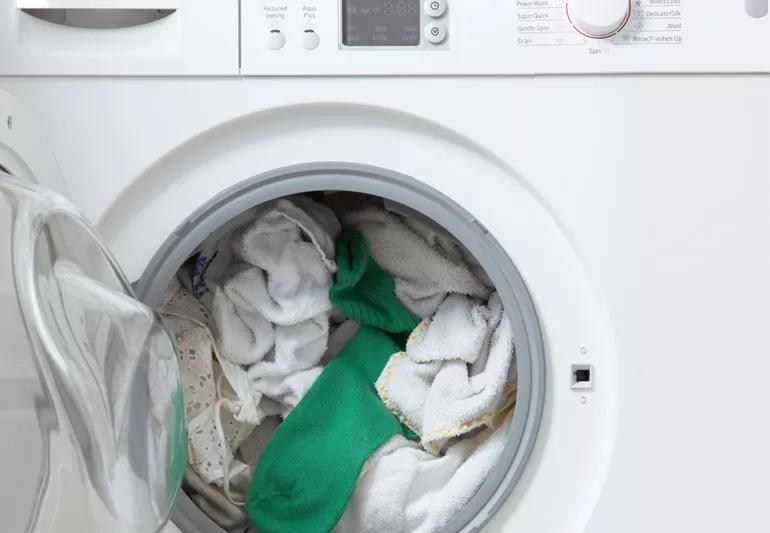Advertisement
How to help (and not shame) your child — while keeping your sanity

Potty training, in all honesty, probably ranks up there with one of your least pleasurable parts of parenting. And you’re SO thankful when — at long last — it’s over!
Advertisement
Cleveland Clinic is a non-profit academic medical center. Advertising on our site helps support our mission. We do not endorse non-Cleveland Clinic products or services. Policy
Or wait, a pooping accident? What happens when your perfectly potty-trained (and possibly even school-aged) child starts having not just one random, unexplainable accident? They’re either pooping or leaving rather significant skid marks in their underpants, regularly. Or, even hiding their soiled underwear. Ugh.
It’s equal parts gross and frustrating, and you’re really tired of all that laundry (or buying new packs of undies because you don’t want to deal with it). What in the world is going on?
The answer might be encopresis, a condition that causes soiling as a result of chronic constipation. It’s a difficult condition, admits pediatric gastroenterologist Mohammad Nasser Kabbany, MD. “Soiling is stressful for the child and the parents.”
But help is available. Here’s what you should know about encopresis — and how to get things moving, so that you can move on, too.
Encopresis happens in kids who have already been potty trained. It can be maddening for parents, who often don’t understand why their child just can’t make it to the toilet. But the behavior isn’t something that a child can control, Dr. Kabbany explains.
The problem starts with constipation. When children can’t go easily or comfortably, they tend to hold it. “But the longer the stool stays in the colon, the harder it becomes. You end up with more stool accumulating,” Dr. Kabbany says.
Over time, the plug of poop that accumulates can actually stretch out the colon, dulling the nerves that normally signal when it’s time to go. “The colon gives up and stops sending signals,” Dr. Kabbany says.
Soiling occurs when softer stool seeps out around that backup. Parents may think their child has diarrhea, when in reality, it’s the opposite problem.
Treating encopresis means treating chronic constipation. The first step, Dr. Kabbany says, is to remove the accumulated stool so things can move freely. “You have to break the cycle by removing the plug.” That usually requires a treatment such as an enema or laxative. (Pro tip: Let your doctor handle that part.)
The second step is to prevent more backups from forming. That typically involves three key changes:
“Treatment takes some effort,” Dr. Kabbany says. Even after things get moving again, it can take months for the colon to return to normal— and to restart sending those “time to poop” signals.
Advertisement
During that time, there’s a risk of symptoms recurring. But parents can help by promoting good bathroom habits, continuing diet changes and, yes, checking the toilet to make sure the poop is soft and regular.
Encopresis is a difficult condition, and it’s normal to feel overwhelmed and frustrated. It’s often a good idea to see a specialist, such as a pediatric gastroenterologist, who can help your kiddo get back on track.
And remember that it’s not something your child can control. “No child should be punished or penalized for soiling. Shaming is counterproductive,” Dr. Kabbany says. “Encourage your child, and praise any improvement, no matter how small.”
Children with encopresis may benefit from seeing a psychologist, he says. Mental health professionals can help kids cope with the shame and also help them develop healthy habits. Some clinics also have support groups for encopresis, Dr. Kabbany adds. “It can be helpful to meet with other families who have shared these experiences.”
Though it takes time and patience, treatment does help. Most children eventually become regular, without needing to take laxatives long-term. “The majority of these kids do get better,” he says.
Advertisement
Learn more about our editorial process.
Advertisement

Integrating coping skills into your teen’s daily routine helps turn self-care into a lifelong healthy habit

Tantrums and meltdowns are normal, but you can help your child manage their bigger emotions

Talking in the car, resisting the urge to judge and asking specific questions can help rebuild rapport

Yes, it’s safe for babies starting at about 9 months old and can help clear nasal mucus

Local LGBT centers, online directories, visual cues and gender-affirming care or non-discrimination policies can all be helpful resources and cues

Wait until they’re at least 6 months old before your little one takes their first dunk

From newborn through teen years, your child’s sleep needs will change

Early weight gain can lead to health issues like heart disease, diabetes and cancer

Focus on your body’s metabolic set point by eating healthy foods, making exercise a part of your routine and reducing stress

PFAS chemicals may make life easier — but they aren’t always so easy on the human body

While there’s little risk in trying this hair care treatment, there isn’t much science to back up the claims